Related Research Articles

Gustav Robert Kirchhoff was a German physicist who contributed to the fundamental understanding of electrical circuits, spectroscopy, and the emission of black-body radiation by heated objects.

Expressionism is a modernist movement, initially in poetry and painting, originating in Northern Europe around the beginning of the 20th century. Its typical trait is to present the world solely from a subjective perspective, distorting it radically for emotional effect in order to evoke moods or ideas. Expressionist artists have sought to express the meaning of emotional experience rather than physical reality.
The historical school of economics was an approach to academic economics and to public administration that emerged in the 19th century in Germany, and held sway there until well into the 20th century. The professors involved compiled massive economic histories of Germany and Europe. Numerous Americans were their students. The school was opposed by theoretical economists. Prominent leaders included Gustav von Schmoller (1838–1917), and Max Weber (1864–1920) in Germany, and Joseph Schumpeter (1883–1950) in Austria and the United States.

Gustav FriedrichSchmoller was the leader of the "younger" German historical school of economics.
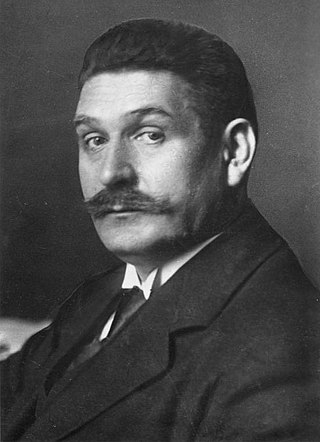
Gustav Adolf Bauer was a German Social Democratic Party leader and the chancellor of Germany from June 1919 to March 1920. He served as head of government for nine months. Prior to becoming head of government, Bauer had been Minister of Labour in the first democratically elected German cabinet. After his cabinet was brought down by the Kapp Putsch in March 1920, Bauer served as vice-chancellor, Minister of the Treasury, and Minister of Transportation in other cabinets of the Weimar Republic from May 1920 to November 1922. In 1924 and 1925 he was involved in the Barmat scandal.

Głogów is a city in western Poland. It is the county seat of Głogów County, in Lower Silesian Voivodeship, and was previously in Legnica Voivodeship (1975–1998). Głogów is the sixth largest town in the Voivodeship; its population in 2021 was 65,400. The name of the town derives from głóg, the Polish name for hawthorn.

Gustav Heinrich Wiedemann was a German physicist and scientific author.
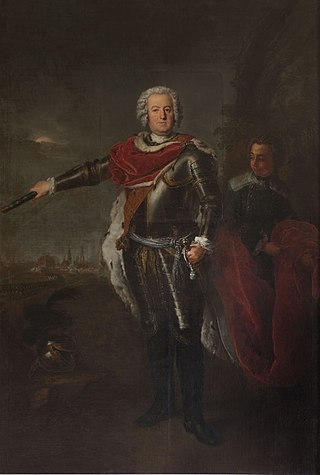
Leopold II Maximilian, Prince of Anhalt-Dessau, was a German prince of the House of Ascania and ruler of the principality of Anhalt-Dessau from 1747 to 1751; he also was a Prussian general.
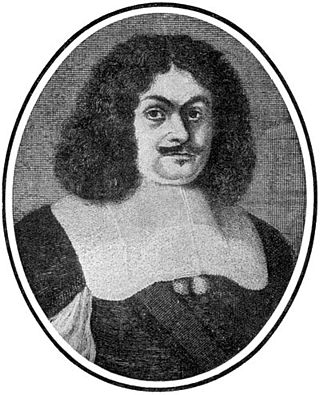
Andreas Gryphius was a German poet and playwright. With his eloquent sonnets, which contains "The Suffering, Frailty of Life and the World", he is considered one of the most important Baroque poets of the Germanosphere. He was one of the first improvers of the German language and German poetry.
Gustav Friedrich Oehler was a German theologian.
Georg Gustav Fülleborn was a German philosopher, philologist and miscellaneous writer.

The Treaty of Labiau was a treaty signed between Frederick William I, Elector of Brandenburg and Charles X Gustav of Sweden on 10 November (O.S.) / 20 November (N.S.) 1656 in Labiau. With several concessions, the most important being the elevation of Frederick William I from a Swedish vassal to a full sovereign in the Duchy of Prussia and in Ermland, Charles X Gustav strove to "buy Frederick William's support" in the ongoing Second Northern War.

The Budapest Quartet was a string quartet established in Budapest in 1886 by Jenő Hubay and David Popper.
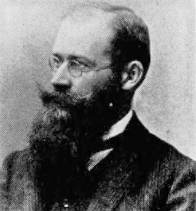
Gustav Schnürer was a German-Swiss historian.
Wilhelm Eugen Ludwig Ferdinand von Rohr was a Prussian general and minister of war.
Gustav Höcker was a German author and translator of popular historical novels.
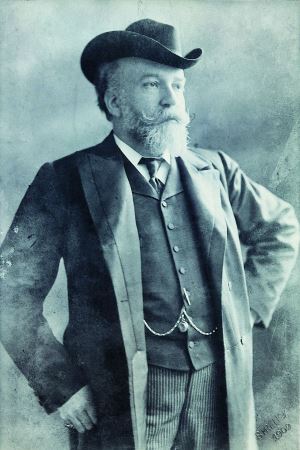
Victor von Herzfeld was a Hungarian violinist and composer. He studied at the University of Vienna in law and at the Music Academy of Vienna music where he won first prize for both composition and violin playing. In 1884, he was awarded the Beethoven prize of the Society of the Friends of Music. He studied in Berlin with Eduard Grell and in 1886 went to Budapest as Professor in the Music Academy. He was second violin in the original Budapest Quartet established by David Popper and Jenő Hubay. Ernő Dohnányi dedicated his Sonata in C♯ minor for violin and piano, Op. 21 (1912) to Von Herzfeld. While serving as the music critic of the "Neue Pester Journal" he wrote a negative review of his friend and colleague Gustav Mahler's First Symphony. He is the author of a 1915 article on Robert Volkmann. He was buried at Kerepesi Cemetery in Budapest.
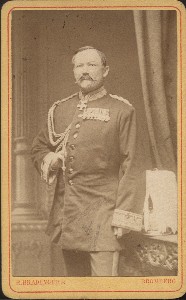
Friedrich Otto Gustav Quedenfeldt was a German entomologist who specialised in Coleoptera.
Georg Paul Rudolf Meissner or Meißner or Meiszner was a German philologist who specialized in Germanic studies.
References
- ↑ Hartley, Andrew James (2015). Shakespeare on the University Stage. Cambridge, MA: Cambridge University Press. p. 134. ISBN 9781107048553.
- ↑ Damböck, Christian (2017). 〈Deutscher Empirismus〉: Studien zur Philosophie im deutschsprachigen Raum 1830-1930. Cham: Springer-Verlag. p. 121. ISBN 9783319396187.